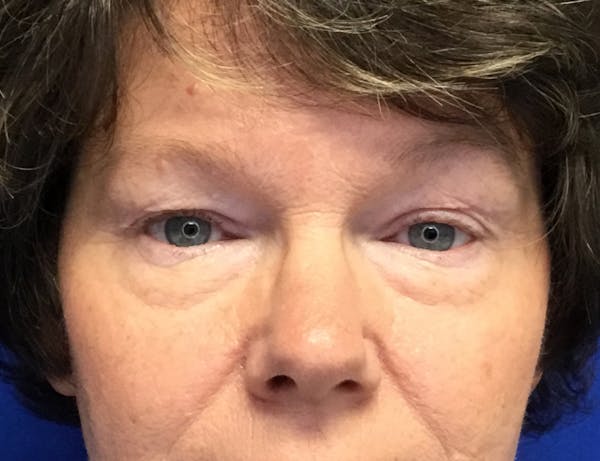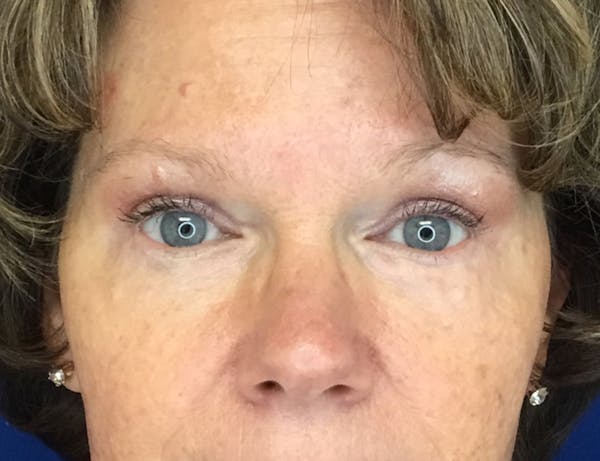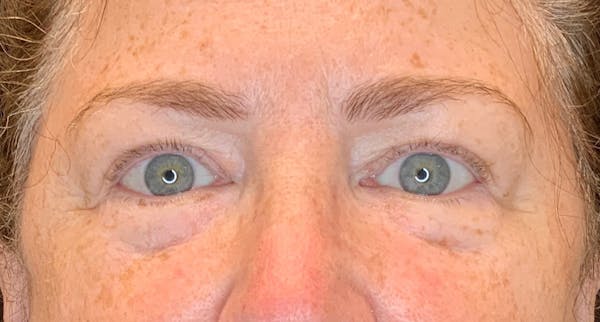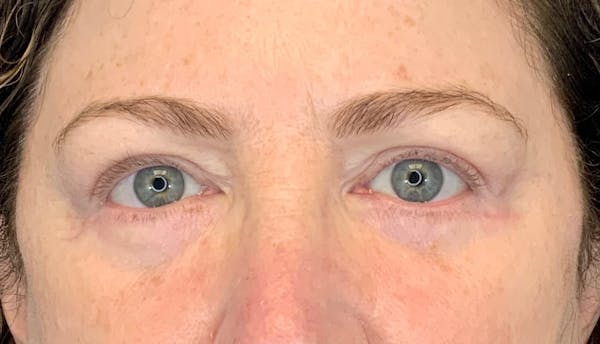If you're constantly looking more tired or angry than you actually feel, the problem may be with your eyelids...but we can take care of that for you! Richmond Plastic Surgeons offers some of the best eyelid surgery AKA blepharoplasty Richmond has to offer. Contact us today to schedule your personal consultation.
Your eyes are the window to your soul, and enhancing them surgically doesn’t necessarily require a full facelift! Blepharoplasty (also known as eyelid surgery) reduces the fat and extra skin that can cause unsightly drooping or puffiness in your upper and lower eyelids. Richmond Plastic Surgeons offers eyelid surgery (blepharoplasty) for men and women in Richmond, Midlothian and surrounding areas of Virginia.
What Exactly is Blepharoplasty?
Aging impacts many aspects of our appearance, but few of us actually stop to consider how this changes our eyelids. Loose skin, extra fat, and even swelling around the eyes can make you look angry, tired, or aged — when you might actually be none of those things!
Our Richmond blepharoplasty at RPS is some of the best around - we specialize in eyelid lifts to correct these problems and give you a more refreshed and youthful appearance.
Many of our happy patients have gotten the best results from their eye lift surgery by combining it with a face lift or brow lift, for extra balance to their facial rejuvenation. Surgery for both the upper and lower eyelids is an outpatient procedure, which we usually perform at our discreet and convenient surgery center.

What Are the Benefits of Eyelid Surgery in Richmond?
Blepharoplasty comes with a handful of benefits:
- It’s an outpatient procedure performed on the upper and/or lower eyelids
- Only small incisions are required
- You can instantly take years off your appearance
- Experience reduced eye fatigue caused by the extra weight of the upper eyelids
- Combine it with a brow lift or facelift to rejuvenate your entire face!
What Should I Do Before Having Eyelid Surgery?
Your first step will be setting up a consultation with one of our board-certified surgeons. We’ll review your medical history, discuss any conditions you have, including current medications, and evaluate your tear production and vision. You’ll also want to talk through any allergies; if you’re taking any vitamins, medications (prescription or over-the-counter), or other drugs; and if you smoke.
You should also provide any relevant information from your ophthalmologist or the record of your most recent eye exam. If you wear glasses or contact lenses, be sure to bring them along.
If you meet the medical requirements for an eyelid lift, your surgeon will walk you through everything you need to know, so you can feel completely safe and comfortable.
You and your surgeon should carefully discuss your goals and expectations for this surgery. You’ll need to discuss whether to do all four eyelids or just the upper or lower ones, whether skin as well as fat will be removed, and whether any additional procedures are appropriate.
Preparing For Your Surgery
Your surgeon will give you specific instructions on how to prepare for your Richmond blepharoplasty, including guidelines on eating and drinking, smoking, and taking or avoiding certain vitamins and medications. Carefully following these instructions will help your surgery go more smoothly.
While you’re making preparations, be sure to arrange for someone to drive you home after your surgery, and to help you out for a few days if needed.

What Should I Expect on The Day of My Blepharoplasty?
Eyelid surgery may be performed in a surgeon’s office-based facility, an outpatient surgery center, or a hospital. It’s usually done on an outpatient basis; rarely does it require an inpatient stay.
Types of Anesthesia
Eyelid surgery is usually performed under conscious sedation or general anesthesia to keep you comfortable and relaxed. With conscious sedation, you’ll be awake during the surgery, but calm and insensitive to pain. (However, you may feel some tugging or occasional discomfort.) Some surgeons prefer to use general anesthesia; in which case you’ll sleep through the operation.
What Does the Procedure Entail?
Blepharoplasty usually takes one to three hours, depending on the extent of the surgery. If you’re having all four eyelids done, the surgeon will probably work on the upper lids first, then the lower ones.
In a typical procedure, the surgeon makes incisions following the natural lines of your eyelids, in the creases of your upper lids, and just below the lashes in the lower lids. The incisions may extend into the crow’s feet or laugh lines at the outer corners of your eyes.
Working through these incisions, the surgeon separates the skin from underlying fatty tissue and muscle, removes excess fat, and often trims sagging skin and muscle. The incisions are then closed with very fine sutures.
If you have a pocket of fat beneath your lower eyelids but don’t need to have any skin removed, your surgeon may perform what’s known as a transconjunctival blepharoplasty. In this procedure, the incision is made inside your lower eyelid, leaving no visible scar. It is usually performed on younger patients with thicker, more elastic skin.
Schedule A Consultation
Contact UsWhat Are Possible Complications of Blepharoplasty?
At Richmond Plastic Surgeons, our board-certified surgeons are very highly experienced, and utilize the latest technology to offer the utmost in safety, and steer clear of complications like:
- Infection
- Poor healing of the incision line
- Asymmetry
- Inability to close the eyes completely
- Downward pulling on the lower eyelid
You can always reduce your risks by closely following your surgeon’s instructions both before and after surgery.
Other minor complications that occasionally follow blepharoplasty include:
- Double or blurred vision for a few days
- Temporary swelling at the corner of the eyelids
- A slight asymmetry in healing or scarring
- Tiny whiteheads that may appear after your stitches are taken out (your surgeon can remove these easily with a very fine needle)
Following surgery, some patients may have difficulty closing their eyes when they sleep; in rare cases this condition may be permanent. Another very rare complication is ectropion, a pulling down of the lower lids. In this case, further surgery may be required.

FAQ
Will I Have Scars After My Eyelid Surgery?
Good news: The scars resulting from eyelid lift surgery are not noticeable. Healing is a gradual process, and your scars may remain slightly pink for six months or more after surgery. Eventually, though, they’ll fade to a thin, nearly invisible white line.
When Will I See the Results?
You can start to see results once the swelling goes down which can take a few weeks. The positive results of your eyelid surgery-the more alert and youthful look-will last for years. For many people, these results are permanent.
How Long Will the Results of Eyelid Surgery Last?
Forever! The results of our eyelid lifts are permanent.
How Much Does Blepharoplasty Cost in Richmond?
While cosmetic blepharoplasty is an out-of-pocket expense, some cases of upper blepharoplasty may be covered by insurance. For cash patients, we can provide you with an accurate cost breakdown, so you can plan your budget. We accept several forms of payment, including financing through CareCredit®.










